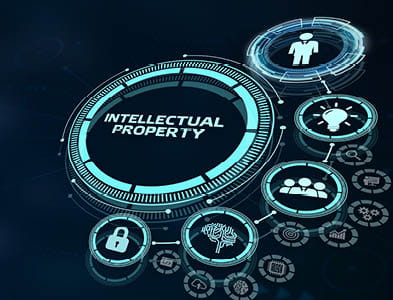Giving Up Control: Self-Driving Cars and Intellectual Property
Giving Up Control: Self-Driving Cars and Intellectual Property
The global self-driving market is estimated to reach $42 billion by 2025; what does this mean for the IP involved in the new technology?
From automakers in Detroit to tech startups in Silicon Valley, companies are investing vast resources into new technologies necessary to bring the dream of self-driving cars to fruition. Such technologies include new collision-avoidance camera systems, high-precision GPS and navigation technology, improved operating and security software, and more advanced sensors. Companies investing in these new technologies believe that self-driving cars will be significantly safer, more luxurious, and will mitigate traffic jams currently plaguing many metropolitan areas. These companies also believe that self-driving cars are the way of the future and will be part of everyday life sooner than most consumers realize. In fact, according to a Boston Consulting Group estimate, the global self-driving market is estimated to reach $42 billion by 2025.1
Intellectual property (IP) plays an essential role in the development of self-driving cars. Companies are filing new patents on automotive control systems, copyrights on more connected operating software, and trademarks on newly created brands related to self-driving cars. In fact, between 2010 and 2015, there were more than 22,000 new inventions related to self-driving automobiles patented around the world2 with automakers, not Silicon Valley, leading the charge. Interestingly, 128 auto-related companies attended the Consumer Electronics Show in Las Vegas in 2017, the largest auto presence ever at the show up to that point.3 Leading the charge was Toyota, which, according to a Reuters survey, owns over 1,400 patents related to self-driving cars, more than twice as many as any other company.4 General Motors, the top-ranking U.S. company, placed fifth in the Reuters survey, with approximately 150 patents. 5
Despite the explosion of IP filings related to self-driving cars, companies are beginning to recognize the necessity for collaboration. Not only are automotive manufacturers increasing their collaboration with competitors in the industry, but they are also increasing their collaboration with tech firms in Silicon Valley as they may benefit from partnering with some of the best minds in the world in software coding, automation, and robotics. For self-driving cars to become a reality, automakers and tech firms very likely will need to work together.
Inter-industry collaboration is already becoming evident. For example, Google agreed to a deal with Fiat Chrysler related to the production of self-driving minivans.6 Ford invested $182 million to fund and collaborate on software development with San Francisco-based Pivotal7 and $1 billion in a new self-driving automotive startup called Argo AI.8 Volkswagen announced it will partner with tech firm Mobileye to implement "a new navigation standard for autonomous driving starting in 2018."9
According to Leo King, contributor to financial publishers Raconteur and Forbes, “Manufacturers and coders remain dwarfed by the scale of the self-driving mission, and they know they must collaborate. This requirement is transforming how the industry will turn ideas into a buyable reality.”10 Despite the fact that many companies working on the self-driving car have enormously different IP portfolios covering, in some cases, completely different technologies, they nonetheless realize that the sharing of such IP is unavoidable.
Although it’s too early to tell, it will be interesting to see what effect this collaboration has on IP litigation and future IP-related collaboration. For example, with the open sharing of ideas, code, and research between tech and automotive firms, there becomes an increased likelihood that one firm will accuse a partner or former employee of misappropriating or otherwise mishandling proprietary trade secrets. In one instance, Waymo, a company that specializes in self-driving car technology and owned by Google parent company Alphabet, Inc., accused Uber of trade secret theft related to Waymo’s laser-scanning technologies.11 In another instance, Tesla Motors sued the former head of its autopilot program after that individual announced he was partnering with a former Google engineer to create a new automotive startup. Companies working on self-driving cars are aggressively competing for new talent and new technology. We believe that the increased collaboration will inevitably lead to a rise in the number of trade secret disputes.
The development of self-driving cars and their underlying technologies creates myriad opportunities to explore valuation issues associated with collaborations between the software, high-tech, and automotive industries. As IP valuation practitioners, we believe the valuation and pricing of IP assets for co-development, licensing, joint venture, and other similar types of agreements will be central to the successful execution of these agreements and, as a result, the successful commercialization of self-driving cars. Furthermore, the deal terms that are agreed to between collaborators may have long-lasting effects on IP valuation issues for each respective industry, as these deals have the opportunity to help set market prices for IP for both self-driving cars and products that may similarly require cross-industry collaboration.
- https://www.bloomberg.com/news/articles/2015-01-08/driverless-car-global-market-seen-reaching-42-billion-by-2025
- http://stateofinnovation.com/will-self-driving-cars-disrupt-the-auto-industry
- http://www.detroitnews.com/story/business/autos/chrysler/2017/01/01/automakers-tech-ces/96074724/
- http://www.reuters.com/article/us-tech-ces-autos-idUSKBN0UJ1UD20160105
- http://www.ipwatchdog.com/2016/07/11/automakers-lead-slicon-valley-self-driving-car/id=70706/
- http://www.raconteur.net/business/increasing-collaboration-in-car-patents-market; http://images.info.science.thomsonreuters.biz/Web/ThomsonReutersScience/%7B86ccb67a-e45a-4c3a-8513-5350b39929de%7D_tr-automotive-report-2016_final.pdf
- http://www.freep.com/story/money/cars/2016/05/15/enemies-partners-automakers-and-silicon-valley/84205144/
- https://qz.com/908151/ford-knows-where-to-invest-to-win-the-self-driving-car-race-and-its-not-in-cars/
- http://www.investors.com/news/technology/mobileye-to-work-with-volkswagen-on-self-driving-auto-technology/
- http://www.raconteur.net/business/increasing-collaboration-in-car-patents-market
- https://www.bloomberg.com/news/articles/2017-02-23/alphabet-s-waymo-sues-uber-for-stealing-self-driving-patents




